Adhesive capsulitis also known as frozen shoulder, occurs when the connective tissue surrounding your shoulder become stiff, thick, and inflamed and you loose range of motion in your shoulder.
What is Adhesive Capsulitis?
Adhesive capsulitis also known as frozen shoulder, occurs when the connective tissue surrounding your shoulder become stiff, thick, and inflamed. Frozen shoulder is categorized into 3 stages:
- Stage 1 (Freezing): Pain arises when moving and worsens at night, the shoulder also starts to feel stiff
- Stage 2 (Frozen): Shoulder stiffness increases and there is loss of range of motion, pain starts to lessen
- Stage 3 (Thawing): Pain decreases, and shoulder movement starts to improve
What causes adhesive capsulitis? What are common symptoms for adhesive capsulitis?
Frozen shoulder can be classified as primary (no attributable reason for onset) or secondary (onset is from a known cause or preceding factors). Having diabetes or a thyroid condition can increase your chances of frozen shoulder. Osteoarthritis contributes to shoulder stiffness and discomfort which can escalate into frozen shoulder. Also, if your shoulder has been immobilized for extended periods of time, frozen shoulder can develop as a result.
Common symptoms include:
- Decrease shoulder range of motion in external rotation, abduction, and internal rotation
- Shoulder stiffness
- Dull aching shoulder pain
- Pain worsens when you move your arm in certain directions
- Pain when sleeping on the affected side
- Difficulty with dressing and showering
How can Physiotherapy help adhesive capsulitis?
To help treat your frozen shoulder, your Strive physiotherapist will conduct a thorough examination assessing your posture, shoulder range of motion and your scapular (shoulder blade) position and mobility. Based on this information, you will be given a personalised exercise program to help maintain your shoulder range of motion, and strengthen your shoulder and its supporting muscles. Your Strive physiotherapist will implement a variety of hands-on techniques such as massage, passive stretches, and shoulder mobilizations when your perception of pain has decreased. They may also perform acupuncture and/or dry needling to adjacent muscles to increase range of motion and decrease stiffness. Taping may also be performed to position your shoulder in correct alignment. Shockwave therapy can also be administered by your physiotherapist to initiate the inflammatory response which should speed the recovery process and helps with pain relief.
How can massage therapy help adhesive capsulitis?
Massage therapy can be performed to help reduce shoulder and scapula stiffness. Releasing tension in the muscles of the chest, neck, upper back, and biceps can help increase shoulder range of motion and reduce some discomfort. Your Strive massage therapist will perform muscle and fascial release to address postural compensations in the upper back, neck, chest, and shoulders that are contributing to pain and tightness.
How can Sports Medicine/Physiatry help adhesive capsulitis?
Your Strive physiatrist and sports medicine physicians can perform specialized procedures to help your situation. They can perform injections such as cortisone to help reduce pain and inflammation. They can order images for your shoulder (ex. Xray, MRI, ultrasound) to determine if any underlying issues are present such as osteoarthritis. Your Strive physiatrist can prescribe medications corresponding to your situation.
What are the best exercises to help with my adhesive capsulitis?
To get started in treating your frozen shoulder, check out our frozen shoulder home exercise program. Please keep in mind that these exercises were designed as a starting point for improving your symptoms. These exercises should not be performed if they cause or increase discomfort. It is important to do all these exercises within your pain tolerance excessive stretching can slow your recovery from frozen shoulder.
Exercises include:
- Cross body arm stretch
- Single arm pectoral stretch
- Internal rotation using a towel
- External rotation when lying supine (on back)
- Shoulder flexion and abduction raise
How long does it take to recover?
Depending on what phase you are in, your timeline for recovery will vary. It approximately takes 6-9 weeks to surpass the freezing stage, 2-6 months to complete the frozen stage, and can take up to 2 years to exit the thawing phase.
What can I do to treat my adhesive capsulitis at home?
One part of symptom management is avoiding movements that aggravate your symptoms. Specifically, performing shoulder flexion (reaching above your head), internal rotation (scratching behind your back), external rotation (touching the top of your head), and abduction (reaching to the side) should be reduced. You can apply a hot or cold compress to help alleviate pain, reduce swelling, and to loosen the shoulder joint before moving

This content was created by Jared Dolman-Smith as part of the requirements for the Guleph-Humber Kinesiology student placement Legacy Project assignment.
Strive is dedicated to empowering people through education and proud to support multidisciplinary health professional education.

This content was created by Jared Dolman-Smith in 2021 as part of the requirements for the Guleph-Humber Kinesiology student placement Legacy Project assignment.
Strive is dedicated to empowering people through education and proud to support multidisciplinary health professional education.

Grace Underwood
HBComp (Honours), MSc in Computing, MScPT
Registered Physiotherapist
Grace completed her Master of Science in Physical Therapy at the University of Toronto. Before physiotherapy school she obtained a Bachelor of Computing with a specialization in biomedical applications and a Master of Science in Computing from Queen’s University. During her Physiotherapy education, Grace enjoyed clinical internships in amputee rehabilitation, paediatric neurosurgical rehabilitation, lung transplant rehabilitation, and several out-patient clinics working with patients following joint replacement and fracture, patients with Long COVID, and WSIB patients.


